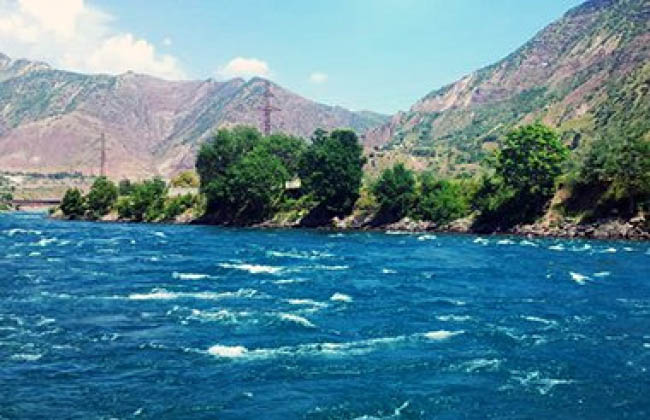As climate changes, water Shortages are likely to fuel certain conflicts in many region around the world. According to some political analysts, “Water Wars” are becoming inevitable in the world's future as the misuse of water resources continues among countries that share the same water source. International law has proven itself inadequate in defending the equal use of shared water supplies in some parts of the world. The rapid population increase has greatly affected the amount of water readily available to many people. Reports shows over 2,200 incidents, involving conflict and collaboration alike, over shared river basins and resources in last decades. More than 1 billion people around the world have no access to safe, clean drinking water, and over 2.5 billion do not have adequate sanitation service. Over 2 million people die each year because of unsafe water - and most of them are children!
Generally, there are several factors that intensify water shortage and influence water quality such as climate change, agricultural activities, increasing population, types of water supplies, embedded technology in water management sector, wastage of water, quality of sanitation activities, storage of raw water in dry season, quality of canalization network. On the other hand, Clean potable water such as basic life necessity from the following sources is considerable safe: Indented wells, protected dug wells (safe springs), bottled water, rain water collection, pipe into dwelling etc. Relevance to population growth and decreasing agricultural lands, the responsible authorities indispensable to undertake certain measures such as prevention of water losing in traditional agricultural sectors and urban water system network, changing the consumption patterns, regulated plans for drought combating.
Thought water covers two-thirds of the surface of the earth, but fresh water estimated 0.002% on earth. That’s why, many regions around the world deal with shortages of water. Some areas deal more with conflicts over inadequate water supplies and disputes over shared water supplies. In regions where countries compete for access to water, the relations between the countries are likely to become unstable. In regions where water supply is scarce, combat sometimes seems to be the only way to resolve the problem. Like many other natural resources, the estimated 0.002% (1,250 square kilometers) of freshwater not evenly distributed among countries sharing the same water source. While the need for water is essential for food production used in irrigation farming. Water systems usually arise in one country and pass through others before reaching the sea or oceans. The rivers and lakes that come off these larger water systems are typically shared by more than one country. The states where these systems originated tend to try and gain the most control over the water use.
Studies show that water scarcity is severe in Afghanistan with its neighboring countries. Recently, Hamid Karzai, the former president of Afghanistan said at a New Afghanistan Research and Studies Center (NARSC) conference in Kabul that a large amount of water goes to Iran and Pakistan and that those countries should respect Afghanistan’s water rights.“ “Our water is being given freely to neighboring countries; I am worried about water security in future especially in light of climate change. If we have more water, we will give a part of it to our neighbors,” he expressed.
According to data provided by NASRC, Afghanistan only uses 30 percent of its total annual natural water while the rest goes to neighboring countries without receiving any money in exchange. In fact, the chaotic politics of water between Afghanistan and its neighbors has a long history, due to the lack of water-sharing agreements between them. Despite sharing 90 percent of its water resources with neighbors, Afghanistan has only one bilateral water treaty, with Iran Signed in 1973. Consistent with the agreement, Iran should receive 850 million cubic meters of water annually from the Helmand River basin. But it is said that they have been receiving 70 percent more than the amount of water initially agreed upon in 1973. Furthermore, without consulting Afghanistan, Iran has built infrastructure on the water flowing from Afghanistan.
To satisfy domestic needs, we need to invest in water infrastructure throughout the country, and devise an efficient plan which should also include the control of medical waste and polluted water in urban areas that is contaminating water supplies. Water sources should be distributed through pipelines and needs clusters of water tanks should be constructed in different areas to provide drinking water. New research is needed to form a collective diagnosis of the strengths and weaknesses of current river basin management practices especially in major cities. This would help ensure future plans for action are rooted in a realistic assessment of the current situation and add practical value where it’s. Additionally, water misuse is rampant is the country therefore, necessary actions must be taken place broadly.
To prevent any conflicts, all actors, Afghanistan and neighboring countries should commit themselves to regional cooperation and collective legitimate action. Any disputes and disagreement over water sharing between Afghanistan and the neighboring countries will lead to further tangled ties in the region. And future socioeconomic, environmental, and hydrologic challenges will threaten all. Any potential water treaty between Afghanistan and neighbors in the future should generate gains for all the stakeholders. It is time for the leaders of these countries to agree on the common cause of development in the region and build their relationships. They must act like statesmen and work for the next generation. The only option the region has for survival is consensus and agreement on pressing issues such as security, economic progress, and water sharing.
Home » Opinion » The World is on Water over Water
The World is on Water over Water
| Mohammad Zahir Akbari

